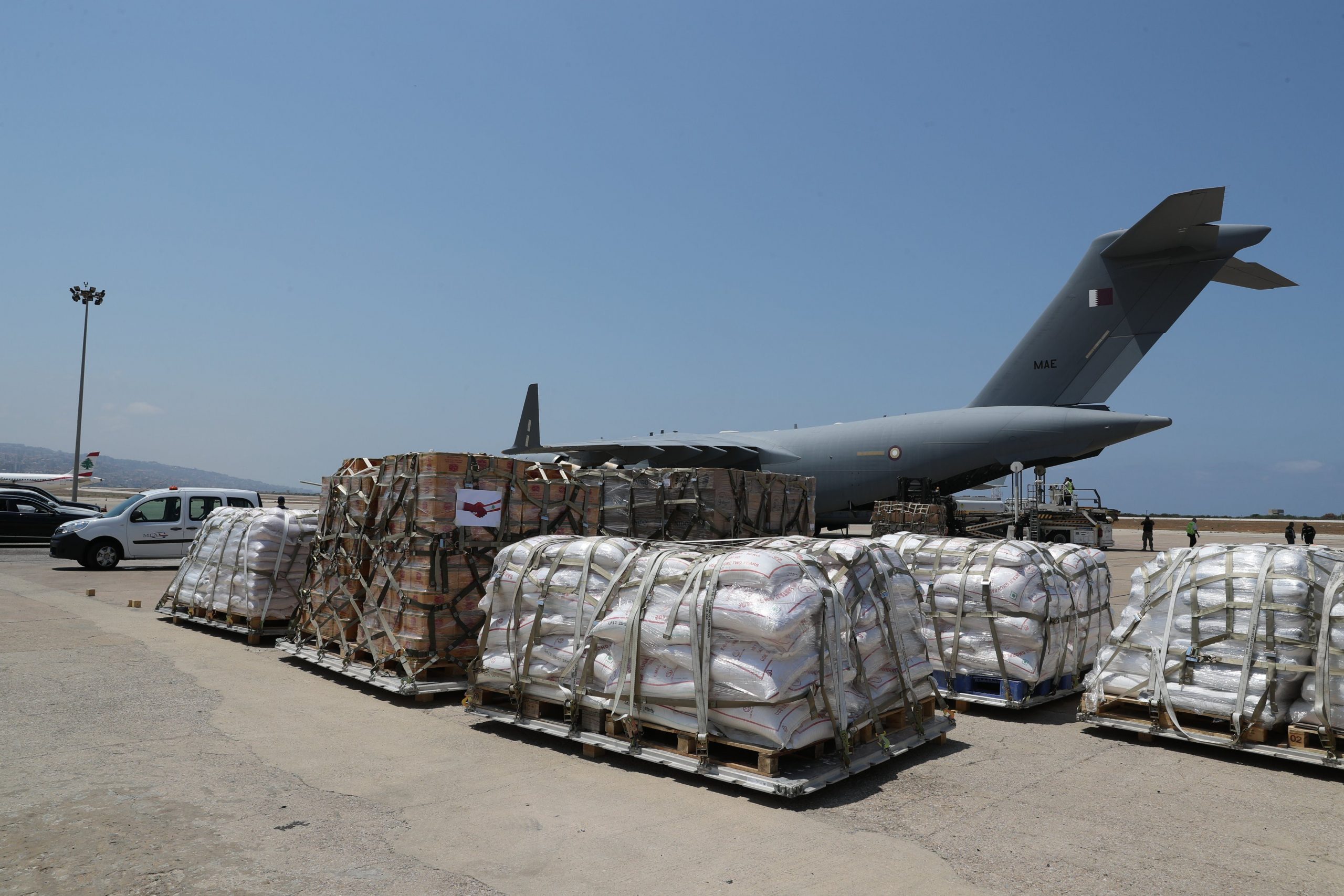The first batch of food to the Lebanese army was sent on 8 July.
The second batch of Qatari food aid to the Lebanese army arrived in Beirut on Sunday, Doha’s state news agency [QNA] reported.
This comes as part of Qatar’s promise to provide 70 tonnes of aid to the military for an entire year as part of its efforts to alleviate some of the burdens on Lebanese authorities.
The first shipment was sent last month on an Amiri Air Force aircraft belonging to the Qatari Armed Forces, as Lebanon continues to seek assistance while facing its worst economic and political crisis in decades.
In June, Lebanon’s army chief Joseph Aoun had appealed to world powers to assist the military, noting it was struggling to pay soldiers’ wages. Aoun also warned that all state institutions would collapse without assistance, as the country itself is unable to support its own people.
A month later in July, Qatar’s Foreign Minister Sheikh Mohammed bin Abdulrahman Al Thani visited Lebanon where he met with President Michel Aoun. This was the third such trip of its kind to Beirut this year by a Qatari official. The Gulf state has repeatedly urged Beirut to expedite the formation of a government.
Lebanon is now grappling with its worst economic crisis in years, which worsened following the coronavirus outbreak as well as the deadly explosion at Beirut port.
According to the World Bank, the financial crisis could rank among the world’s three worst since the mid-1800s, with the Lebanese currency losing more than 90% of its value in the black market and facing a spike in unemployment.
The people of Lebanon are also struggling with a fuel shortage, with many waiting in long lines at gas stations to fill their cars. Lebanon’s producer Électricité du Liban [EDL] has faced difficulties in supplying the country with electricity.
Several residents have also reported blackouts as generators continue to run out of fuel.
Meanwhile, pharmacies have also run out of medicine and baby formula, forcing the public to ration the products.
Shortly after the Beirut blast on 4 August last year, then Prime Minister Hassan Diab stepped down along with several government members.
Former Prime Minister Saad Hariri later became the PM-designate before he stepped down last month without forming a government, and was soon replaced with billionaire businessman Najib Mikati.
Lebanon’s deep economic crisis was exacerbated in October 2019, when plans to impose taxes on internet-based calling services such as WhatsApp, triggered mass demonstrations that were followed by the resignation of Hariri.
Follow Doha News on Twitter, Instagram, Facebook and Youtube







